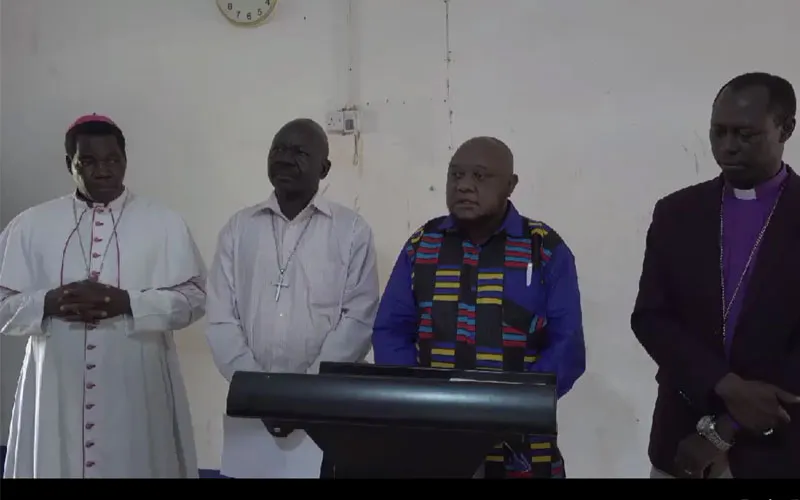They emphasize the need for peaceful co-existence between members of the Azande and the Balanda saying the two ethnic communities have “intermarried and have mixed blood.”
“One cannot disentangle one community from the other,” the religious leaders say in reference to the Azande and the Balanda in South Sudan’s Western Equatoria State.
As a way forward, the religious leaders also highlight a raft of measures to address the situation.
“You should desist from any tribal incitement and provocation. We call on you or to move closer to your communities at this point and together rough out this evil that is taking root in our people,” they say, addressing themselves to all South Sudanese leaders.
Leaders in South Sudan, they say, should “be honest in exercising our stewardship over the people of God.”
(Story continues below)
“We urge you, the leaders, to be accountable before God and man for all your words and deeds,” the religious leaders say.
The governments of the Western Equatoria State and South Sudan, the religious leaders say, should “fulfil their obligation to protect and defend the civil population from internal and external aggression without distinctions.”
They also call on the leadership of the World’s youngest nation “to expedite the full implementation of the Revitalised Peace Agreement, particularly the security arrangements to move saddled and conform lights of identities of armed forces across Western Equatorial State.”
The religious leaders also call on the international community and people of goodwill to contribute towards restoring peace in Tombura County.
“Our attention is on the humanitarian and emergency that has been created, and we, therefore, call upon the UN Agencies and other non-Governmental and community-based organizations to come out and offer consolation, relief and healing to all the distressed without distinctions,” they say.
They also urge “the sons and daughters residing in the Greater Tombura in Western Equatoria State, the whole country and the diaspora to desist from talks that fuel conflicts.”
“We honestly pray that love, peace and unity will reign in the hearts of all of us,” the religious leaders in South Sudan’s Western Equatoria State implored in their collective message.
Peter Mapuor, ACI Africa correspondent in South Sudan contributed to this story.
Magdalene Kahiu is a Kenyan journalist with passion in Church communication. She holds a Degree in Social Communications from the Catholic University of Eastern Africa (CUEA). Currently, she works as a journalist for ACI Africa.








